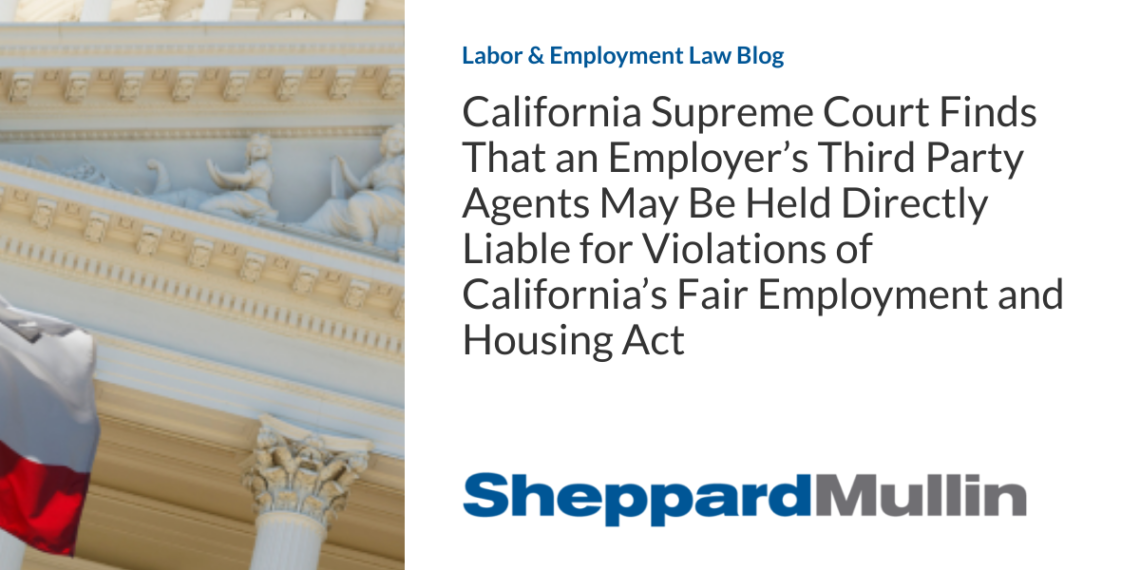[ad_1]
On August 21, 2023, the California Supreme Court held in Raines v. U.S. Healthworks Medical Group that a business entity acting as an employer’s agent can be held directly liable under California’s Fair Employment and Housing Act (FEHA) for claims of employment discrimination.
In Raines, the two plaintiffs received offers of employment that were conditioned on the completion of preemployment medical screening. The medical screening was conducted by third party occupational health providers. As part of the medical screening, the third party providers required the plaintiffs to complete an extensive health history questionnaire with questions unrelated to the job at issue. The plaintiffs brought a putative class action against the third party providers alleging that the questionnaire violated the FEHA.
The primary issue decided by the California Supreme Court was whether third party providers, such as those that provide medical screenings, can be held liable for violations of the FEHA based on such providers acting as an agent of the employer. The California Supreme Court concluded “yes.”
The FEHA defines “employer” as “any person regularly employing five or more persons, or any person acting as an agent of an employer, directly or indirectly.” See Cal. Govt. Code § 12926(d). After an extensive review of the legislative history, federal court decisions, and legislative policy related to this definition of “employer,” the California Supreme Court concluded that business entities with at least five employees that carry out FEHA-regulated activities on behalf of an employer can be held directly liable for discrimination under the FEHA. In reaching this decision, the California Supreme Court declined to opine on the “specific scenarios” in which a business-entity agent could face liability and further declined to opine on whether its holding extends to entities with fewer than five employees.
As a result of this decision, third party entities that are involved in the employment hiring process, including those that provide medical screenings and background checks should review their policies, methods, and practices to ensure that they are compliant with the FEHA.
[ad_2]




